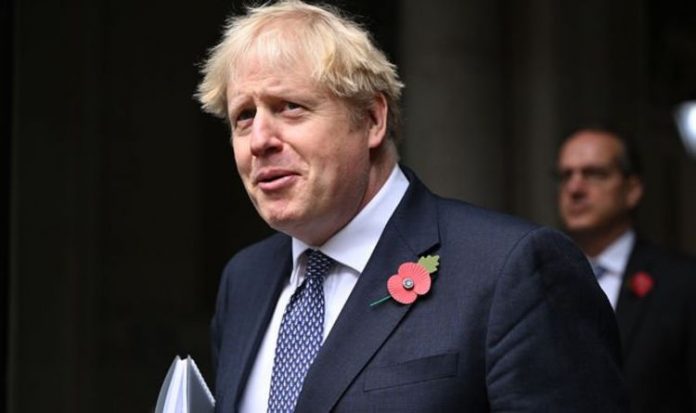Boris Johnson faces a Commons showdown with his own MPs next week amid spreading anger on the Conservative benches over the latest system of tiered local controls. The Prime Minister acknowledged people felt “frustrated”, particularly in areas with low infection rates which now face tighter restrictions than before the lockdown. Communities Secretary Robert Jenrick suggested some areas could be moved into a lower tier when the first 14-day review of the measures takes place in mid-December. “At that point we – advised by the experts – will look at each local authority area and see whether there is potential to move down the tiers,” he told Sky News.”There were a number of places which were quite finely balanced judgments where they were on the cusp of different tiers. Those are the places that are more likely to be in that position.”
At a briefing for Westminster journalists, the Prime Minister’s official spokesman said the data would be kept under constant review.
“Obviously it will be our hope to allow areas to move down into a lower tier. For that to happen, we would need to see the transmission rate of the virus continue to decline,” the spokesman said.
But while the infection rate is slowing – with the latest R number for the UK thought to be between 0.9 and 1 – overall case numbers remain high and scientists advising the Government believe there is little scope for widespread changes in the next couple of weeks.
Professor John Edmunds, a member of the Scientific Advisory Group for Emergencies (Sage) said that by December 16 – the review date – it would still be too soon to know if the new tiered restrictions were proving effective.
“I think we will still be seeing the effect of the lockdown at that point in time,” he told BBC Radio 4’s Today programme.
“I can’t imagine there will be huge changes at that point, just simply because I don’t think we will have accumulated much data by then.”
Meanwhile, First Minister Mark Drakeford has announced that new measures are being introduced across Wales, amid signs that the gains from the country’s 17-day “firebreak” lockdown were being “eroded”.
With the hospital system coming under “sustained pressure”, he said cinemas, bowling alleys and other indoor entertainment venues would close while the hospitality sector would face new restrictions from next week.
In England, 99% of the country is due to enter Tier 2 or 3, with tight restrictions on bars and restaurants and a ban on households mixing indoors when the lockdown lifts on Wednesday.
Only the Isle of Wight, Cornwall, and the Isles of Scilly will be under the lightest Tier 1 controls, while large swathes of the Midlands, North East and North West are in the most restrictive Tier 3.
But the measures will have to been approved in a Commons vote on Tuesday and ministers are coming under intense pressure to move some areas with low infection rates into a lower tier.
During a visit to the Public Health England laboratories in Porton Down, Wiltshire, Mr Johnson said it was necessary to stop the disease spreading to those areas from neighbouring areas where the incidence was high.
“The difficulty is that if you did it any other way, first of all you’d divide the country up into loads and loads of very complicated sub-divisions – there has got to be some simplicity and clarity in the way we do this,” he said.
“The second problem is that, alas, our experience is that, when a high incidence area is quite close to a low incidence area, unless you beat the problem in the high incidence area, the low incidence area, I’m afraid, starts to catch up.”
But the influential chairman of the backbench Conservative 1922 Committee, Sir Graham Brady, strongly criticised the Government’s approach, accusing it of infringing people’s “fundamental human rights”.
“The tiers have been applied in an unjust and unfair way – putting whole counties into lockdown when significant areas have very low levels of infection,” he told the PA news agency.
The gathering Tory rebellion could leave Mr Johnson dependent on Labour support if he is to get the measures approved.
Shadow health minister Justin Madders said the party will wait to see the detailed regulations before deciding which way to vote.
He suggested the Government could be forced to make concessions on some of the tiering decisions if it is to get through.
“I think that that’s part of the debate we’re going to have about making sure that the public has got confidence that this is the right thing to do,” he told Times Radio.







